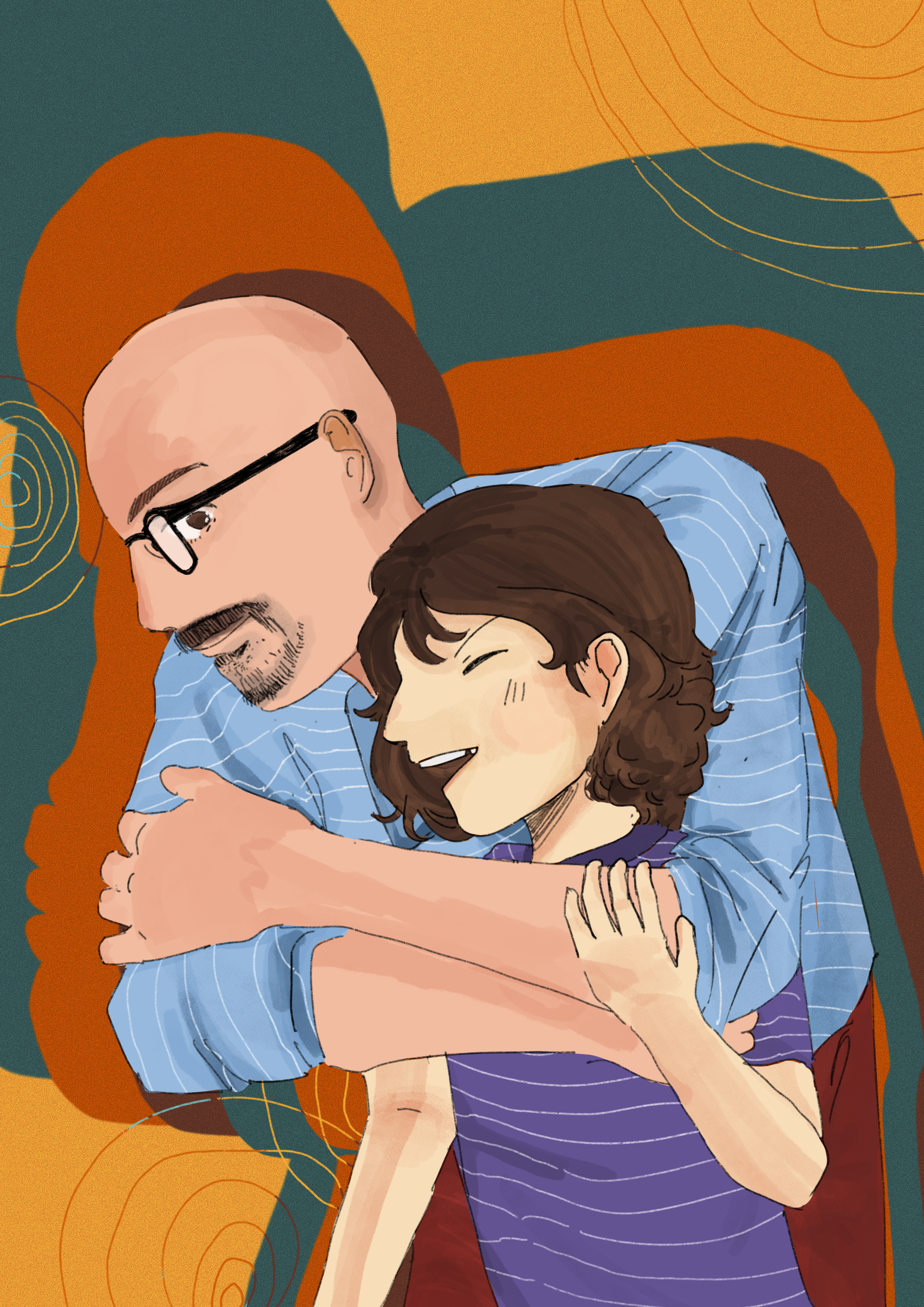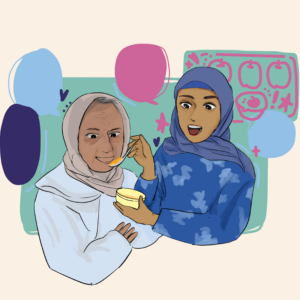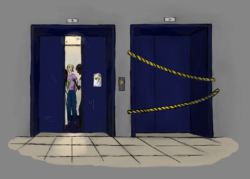When I was a sophomore in high school, I misspelled my name on the PSAT. I didn’t notice until my proctor pointed it out. I had left the “a” off the end of my name, calling myself “Joann” instead of “Joanna.” My mom and dad laughed when I told them about it that night. My mom called me silly.
I don’t think about that moment often, but when I let myself dwell on it, I can’t help but think it might have been the beginning of the end.
***
This is a story about my dad, and about me too—but it starts with Joann, the original one. She was my paternal grandmother who died when I was a baby. I don’t have any memories of her, just a handful of stories and a passed-down name. She had dark hair. Her maiden name was Beach. She had early-onset dementia.
She didn’t know the truth of her condition in her lifetime. Nobody did. When she was about 50, she was diagnosed with schizophrenia; it wasn’t until years later, after my dad got sick, that we realized she’d never been schizophrenic. It was dementia all along. Schizophrenia runs in families, so it worried my dad, but as time went on and he stayed the same, he stopped being so scared. He thought he was in the clear.
He was wrong.
***
His symptoms began after a minor surgery when he started talking about things that weren’t there. We attributed his strange behavior to the anesthesia, believing that he would bounce back to himself after it wore off.
But he never stopped seeing those things. He believed with his whole heart that his perception was the right one and that everyone else was lying to him. He felt, I think, as if he was the only person seeing things clearly, and the rest of us were gaslighting him, when in reality the opposite was true.
It took us a while to figure out what was happening, but by the time I was a senior in high school, we had a diagnosis: early-onset dementia.
It started when he turned 50. Like mother, like son.
***
Selfishly, the thing that’s taken me the longest to reconcile is that my future very well might look the same. I am my father’s daughter, whether I want to be or not. I cannot fight biology.
I’m so much like him that it startles me sometimes. Our laughs sound alike. I love to cook just as much as he did, even though neither of us has ever been good at it. We like the same flavors of ice cream. Every Carolina football game echoes with his commentary I never understood but do now; every basketball piece I write reminds me of when he was my coach in eighth grade. He’d stay behind after practice to let me do extra drills, or shoot free throws, or run sprints, because I wanted to be better and he didn’t have the heart to tell me that I was probably always going to be terrible.
I have his father’s eyes. I have his mother’s name. One day, I might have his degenerative brain disease. I am my father’s daughter.
***
As much as I’d like to say I’ve taken this whole thing in stride, the truth is, I haven’t. I’ve taken it hard. I can’t shake the feeling that 30 years from now, my brain will start to disintegrate, and my identity will slip away until I’m some washed-out, hollow version of myself. I think about it constantly.
Nearly every decision I make, especially the big ones, is tainted by the idea that I’m running out of time. When I was in high school, I wanted to go to law school. I’ve given up on that now because spending another three years in school when I might only have 30 good ones left feels unjustifiable. Long-term plans feel like a countdown. Whenever I go home, I struggle to spend time with my dad, because every time I look at him, I feel like I’m looking at my future.
What I’ve really been doing the past few years is grieving, but it’s a peculiar kind of grief, one that stands apart from other experiences of mourning. Nobody enjoys talking about grief—but grieving for someone who’s dead is at least typical. It’s acceptable.
Nobody talks about grieving for someone who’s still here. Nobody teaches you how to grieve for yourself.
So that’s what I’ve been trying to do: I want to make space for these feelings without letting them suck the joy out of my life. And it’s a really challenging thing to do because it’s such an isolating existence. I’m the only college kid I know whose dad has dementia. Most of the people in my shoes are grown adults, with careers and children of their own. Their parents are older. All of my friends are lovely, but none of them understand how this feels. They can’t relate.
I’m 20. My dad is 56. Most people don’t get diagnosed with dementia until they’re 65; we’re ahead of the timeline, and that’s lonely. But I have to believe that somewhere out there, there’s someone who feels the same way I do, who walks in the same shoes as me, who can read this and know that while we might be lonely, we aren’t alone. That there’s someone who gets it.
There isn’t a lot of hope in this story. But that’s why I wrote this in the first place. Because sometimes, there is no silver lining. Sometimes, things just really fucking suck.
I’m trying my best to make peace with that.
***
My dad told me one time that his favorite thing about me was that I was fearless. For the past few years, I haven’t felt that way. I’m more terrified than anything these days, and that fear makes it hard to look in the mirror sometimes. I can’t help but wonder how different I’d be if he’d never gotten sick, or if I’d just been a few years older when he did. Maybe I’d be braver—or maybe this has made me brave, and I just can’t quite see it yet.
I am my father’s daughter. I am trying to learn that there are far worse things to be.





So brave to write this piece !